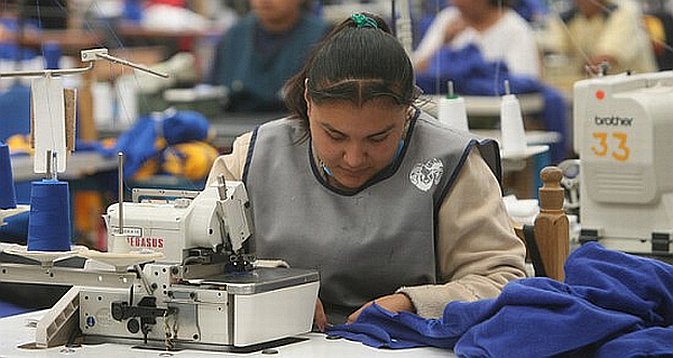Mexico - Signs are emerging that Mexico's textile and apparel industry is reclaiming a growing proportion of the US market as it benefits from an increasing focus on higher-value products and greater diversification.
Mexico's share of the US market, which accounts for around 55 percent of its textile exports and 95 percent of its apparel exports, dropped sharply following China's entry into the World Trade Organization (WTO) in 2001 and its subsequent domination of the global textile and apparel market.
In 2000, Mexico was the US's largest apparel supplier, but it had slipped to the sixth largest by the end of 2010.
However, the value of Mexico's clothing exports to the US grew by 7.4 percent to $3.8 billion in 2011, as it moved up to be the fifth biggest supplier to the US, according to OTEXA (the US Office of Textiles and Apparel.)
China comfortably remained the top supplier, with $29.4 billion worth of exports, but its growth was slower than that of Mexico, at 5.1 percent.
Miguel Angel Andreu, a leading Mexican textile and apparel consultant, who works with many of the country's leading manufacturers, says the Mexican industry is increasingly keen to exploit its numerous advantages, notably its low costs and proximity to the US.
Manufacturers are focusing on their ability to offer flexibility and fast turnaround times, especially as US buyers appear increasingly reluctant to source high volumes of clothing from China due to the continuing uncertainty in the US market.
Meanwhile, data from the Mexican apparel industry association, 'Canaive,' has pointed to figures showing that the gap in overall manufacturing wages between Mexico and China has shrunk dramatically over recent years, with Mexican labor 13.8 percent higher than that in China in 2010, compared with 237.9 percent in 2002.
Andreu adds that equally important to the Mexican industry's revival is its increasing focus on higher quality and a broader product portfolio. He explains that a growing number of apparel manufacturers are benefiting from entering niche fashion markets, and a move away from high-volume production.
"More and more companies are producing shorter runs, and investing in high-quality design," he says, adding that a growing number of suit manufacturers are extending into the fashion market.
He also says that Mexican clothing producers are working increasingly closely with brands in the US to help meet specific requirements, and that a growing number of suppliers are offering full package manufacturing, particularly for denim, which is Mexico's leading apparel export, and T-shirts.
Andreu adds that manufacturers in Mexico are producing increasingly higher value denim apparel, as well as incorporating a growing range of innovations, such as North Carolina-based Cotton Incorporated's Storm Denim finish, which protects the wearer in wet weather.
Meanwhile, Andreu stresses that Mexico's fabric companies are also offering greater value, with technical textiles increasingly prominent.
Mexico Fits, a joint industry initiative designed to boost exports launched in 2009, is highlighting an increasingly wide range of products available in Mexico which, as well as denim apparel and T-shirts, include woven and knitted shirts, non-denim cotton trousers, dresses, suits, lingerie, hosiery, sportswear, swimwear, and non-woven garments.
Mexico Fits was launched by Canaive, Canaintex (Mexico's textile industry association,) ANIQ (the country's chemical industry association,) the ministry of the economy, and ProMéxico (a Mexican government institution established to boost the country's role in the global economy.)
 |
The initiative's director Mariam Yitani says she is being approached by a growing number of major US retailers and brands "interested in returning to Mexico to take advantage of our privileged position for sourcing."
Canaive statements have stressed the industry is also aiming to grow apparel exports to other markets, especially those with which Mexico has a free trade agreement, including the European Union, Japan, Canada, and much of Latin America.
Hopes are increasing as well for stronger growth in the domestic market, though it remains closely tied to the performance of the US economy.
Mexico's apparel retail market was worth $5.4 billion in 2011, representing a compound annual growth rate of 2.8 percent since 2007, according to Fast Market Research.


